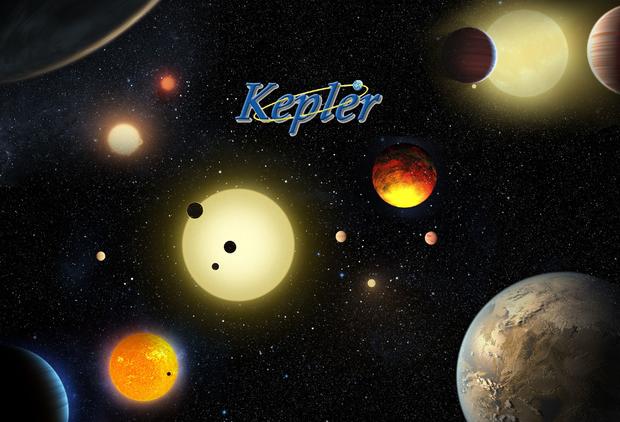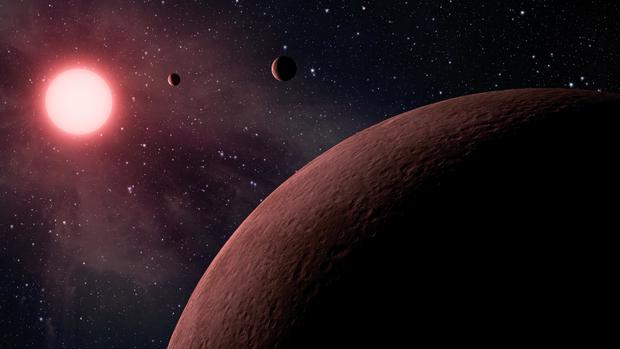Scientists Celebrate Discovery Of 10 New Planets That Could Have Life
MOUNTAIN VIEW (CBS SF) -- The search for extraterrestrials just got some serious pin drops on the celestial map with the discovery of 10 new planets that may have life.
NASA's Kepler space telescope has been on a mission the last 4 years, mapping and scanning the solar system for planets.
The science agency has released its findings – a catalog of 219 new planet candidates. Ten of them are almost the same size as Earth and are the right temperature to have liquid, pooling water on their surface.
The announcement came at a news conference Monday at NASA Ames Research Center in Mountain View.
"This carefully-measured catalog is the foundation for directly answering one of astronomy's most compelling questions – how many planets like our Earth are in the galaxy?" said Susan Thompson, Kepler research scientist for the SETI Institute. Thompson was the lead author of the catalog study.
There are now 4,034 planet candidates in the catalog. Of those, 2,335 are verified exoplanets. Only 50 of them made it into the elite club of Earth-size exoplanets orbiting in their sun's habitable zone.
WATCH: NASA's JUNE 19 PRESS CONFERENCE
The Kepler telescope detects an exoplanet when it sees a faint drop in a star's brightness. That happens during a so-called "transit" – when a planet passes in front of its star. From our Earth we can observe transits Mercury and Venus because their orbits around the Sun lie outside our own. A transit of the Earth across the sun could be seen from by an observer on Mars.
But for all the technical talk about transits, methods and data, Kepler scientist Mario Perez drove home the most exciting part of Monday's announcement.
"We are probably not alone."
To celebrate, NASA has launched "Kepler Exoplanet Week" from June 17 through June 23, with events scheduled across the Bay Area. There will be presentations and panel discussions with some of the world's foremost scientists about planet-hunting and the search for other Earths.
For more information about Kepler Exoplanet Week, go to nasa.gov/kepler/exoplanetweek.
On social media, follow the hashtag # KeplerWeek.
CBSSF.com writer, producer Jan Mabry is also executive producer Bay Sunday, Black Renaissance and host of The Bronze Report. She lives in Northern California. Follow her on Twitter @janmabr.





